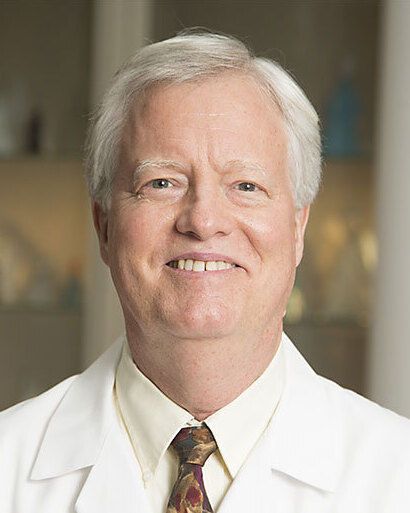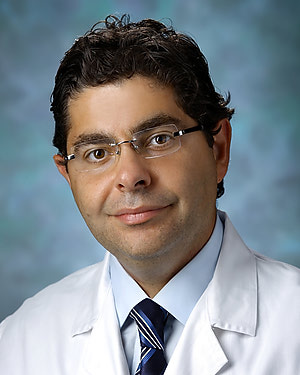Research Lab Results
-
Redonda Miller Lab
Research in the Redonda Miller Lab is focused on women’s health, including osteoporosis and menopause, and medical education. We're also interested in physician practice issues.
-
Retrovirus Laboratory
Research in the Retrovirus Laboratory focuses on the molecular virology and pathogenesis of lentivirus infections. In particular, we study the simian immunodeficiency virus (SIV) to determine the molecular basis for the development of HIV CNS, pulmonary and cardiac disease. Research projects include studies of viral molecular genetics and host cell genes and proteins involved in the pathogenesis of disease. We are also interested in studies of lentivirus replication in macrophages and astrocytes and their role in the development of disease. These studies have led us to identify the viral genes that are important in neurovirulence of SIV and the development of CNS disease including NEF and the TM portion of ENV. The mechanisms of the action of these proteins in the CNS are complex and are under investigation. We have also developed a rapid, consistent SIV/macaque model in which we can test the ability of various antiviral and neuroprotective agents to reduce the severity of CNS and pulmonary disease.
-
Richard John Jones Lab
The Richard J. Jones Lab studies normal and cancerous stem cells in order to make clinical improvements in areas such as blood and marrow transplantation (BMT). We discovered one of the most common stem-cell markers, Aldefluor, which identifies cells based on their expression of aldehyde dehydrogenase 1 (ALDH1), and have used this marker to detect and characterize normal stem cells and cancer stem cells from many hematologic malignancies. We also developed post-transplant cyclophosphamide and effective related haploidentical BMT.
-
Srinivasan Yegnasubramanian Lab
Dr. Yegnasubramanian directs a Laboratory of Cancer Molecular Genetics and Epigenetics at the Sidney Kimmel Comprehensive Cancer Center (SKCCC), and is also the Director of the SKCCC Next Generation Sequencing Center. Our lab research is focused on understanding the complex interplay between genetic and epigenetic alterations in carcinogenesis and disease progression, and to exploit this understanding in developing novel biomarkers for diagnosis and risk stratification as well as in identifying targets for therapeutic intervention. -
Stephen Gould Laboratory
The Gould Laboratory studies vesicles, known as exosomes and microvesicles (EMVs), that can be taken up by neighboring cells, completing a pathway of intercellular vesicle traffic. Our laboratory studies the molecular mechanisms of EMV biogenesis and uptake, and their contributions to cell polarity, cell-to-cell interactions, and intercellular signaling. We also examine the ways in which HIV and other retroviruses use the exosome biogenesis pathway for the formation of infectious virions, and the consequences of their EMV origin.
-
The Sfanos Lab
The Sfanos Lab studies the cellular and molecular pathology of prostate disease at the Johns Hopkins University School of Medicine. We are specifically interested in agents that may lead to chronic inflammation in the prostate, such as bacterial infections and prostatic concretions called corpora amylacea. Our ongoing studies are aimed at understanding the influence of prostate infections and inflammation on prostate disease including prostate cancer and benign prostatic hyperplasia (BPH). The laboratory also focuses on the influence of the microbiome on prostate disease development, progression, and/or resistance to therapy. -
Spinal Column Surgical Outcomes Lab
The Spinal Column Surgical Outcomes Laboratory aims to improve the neurological outcomes and functional capacity of patients undergoing spinal surgery. We collect large-scale retrospective patient databases and prospective patient registries to report high-quality data relating to the outcomes of neurosurgical operations. The laboratory participates in the National neurosurgical Quality and Outcomes Database (N2QOD). This multi-institutional collaboration has set forth a 3-year prospective study to benchmark quality and surgical outcome measures across several academic institutions. The Spinal Column Surgical Outcomes Laboratory specializes in biostatistical analysis of large-scale clinical databases, studying the outcomes of traditional and novel spinal procedures, quality control and cost-effectiveness research and clinical trials relating to spinal surgery outcomes. -
Sonye Danoff Lab
Research in the Sonye Danoff Lab includes both basic and translational studies of lung fibrosis. We have explored topics such as the role of support measures and palliative care, pulmonary manifestations of Sjogren's syndrome, idiopathic inflammatory myopathies and the treatment of cough in idiopathic pulmonary fibrosis. Our research has also involved investigating the lung as a potential target for the immune reaction in myositis.
-
Steven Levin Lab
Research in the Steven Levin Lab focuses on chemical neurolysis, epiduroscopy (and training for physicians), opioid administration, and the use of alternative therapies for pain management. In collaboration with the American Society of Law, Medicine and Ethics and with funding from a Donahue Foundation Grant, we study social and ethical considerations in pain management. We have also been involved in clinical trials of novel analgesics. -
Supendymoma and Ependymoma Research Center
The Johns Hopkins comprehensive Subependymoma and Ependymoma Research Center divideS its efforts into three areas: basic science, translational research and clinical practice. Each division works separately but shares findings and resources openly with each other and our collaborators. The goal of our united efforts is to optimize current treatments to affect the care received by patients with subependymomas and ependymomas. Also, our clinical, translational and basic science teams work to develop novel therapies to improve and extend the lives of those with these rare tumors.





